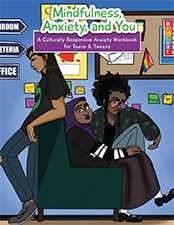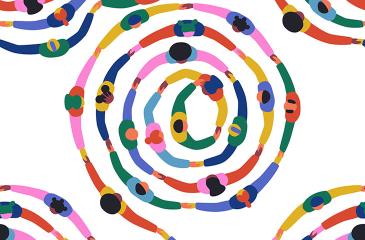Creating Culturally Responsive Resources for MIDB Families
A part of our Community Engagement & Education (CEEd) Hub mission is to include our local communities in every aspect of MIDB services, research, and policy. But how can we do that when certain neurodevelopmental words like “autism spectrum disorder” don't exist in other languages and other cultures?
This is one of the issues I have come across again and again during my global health work in Africa, especially in rural remote villages where families often thought conditions like autism, cerebral palsy, and epilepsy were caused by bad spirits and couldn't be cured. So how do we care for children and connect with families who aren’t able to understand their condition?

One way we’re tackling this issue is by creating materials that connect culturally with children and their families. We recently completed Mindfulness, Anxiety, and You: A Culturally Responsive Anxiety Workbook for Teens & Tweens.
We collaborated with colleagues from the U of M Duluth who have experience in creative writing for children’s stories and community outreach and partnerships with area tribal communities, as well as an Afro-Indigenous Lakota illustrator and community based organizations and care providers to develop this comic book-style workbook that is culturally-specific and catered to underrepresented adolescents.
This is the first of a planned series of culturally-specific resources. Our goal is to not only make these storytelling resources educational for children and families, but to also help providers educate ourselves so we’re more aware of cultural contexts in describing mental health.



